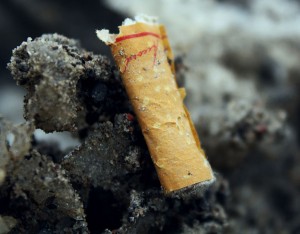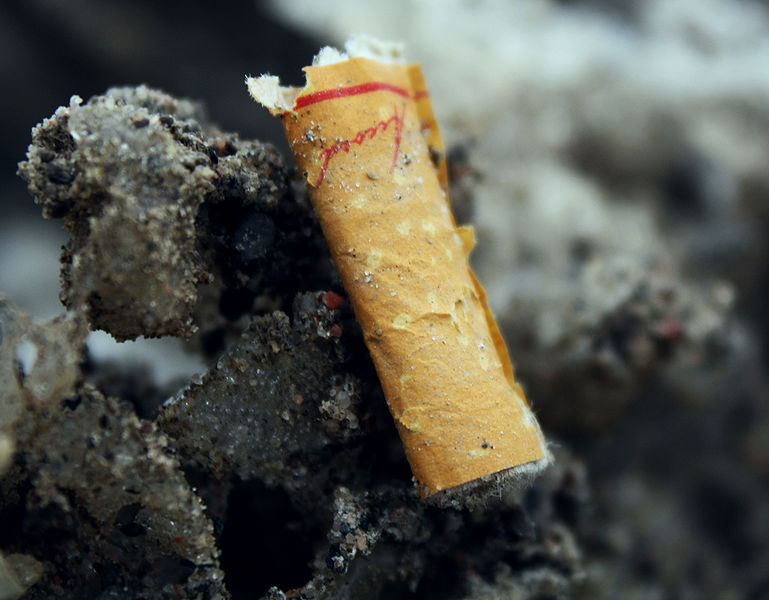
We all know that cigarettes and smoking are bad for you. However, a recent Biology Letters paper which was featured on BBC Nature suggests that the discarded remains of cigarette butts may help to maintain the health of some urban birds.
Researchers from the National Autonomous University of Mexico found that smoked cigarette butts incorporated into house sparrow and house finch nests may act as parasite repellents. Nests which included high numbers of cigarette butts had fewer parasites. A further experiment involving heat traps to attract parasites indicated that the anti-parasitic properties of the cigarettes seemed to be related to their nicotine content which is only released after the cigarettes have been smoked. This doesn’t necessarily mean that the birds use cigarette butts as an adaptive anti-parasite strategy. Cellulose in the butts is an effective thermal insulator so any anti-parasite effects may be a fortuitous coincidence. The authors suggest that future behavioural choice tests could be used to determine whether birds can distinguish and preferentially include smoked cigarette butts in their constructions.
The paper is an interesting contribution to the growing fields of urban ecological and wildlife research. More than half of the world’s population now lives in urban areas so it is increasingly important to understand the ecological effects of this changing environment. Wildlife and urban areas are not always a happy mix – we have all seen the squished remains of a hedgehog’s attempt to cross a busy road. However, as this paper shows, sometimes urban animals can adopt novel behaviours which appear to have positive consequences.
However, I can’t see the paper being used to counteract anti-cigarette butt litter campaigns any time soon!
Author
Sive Finlay: sfinlay[at]tcd.ie
Photo credit
wikimedia commons

